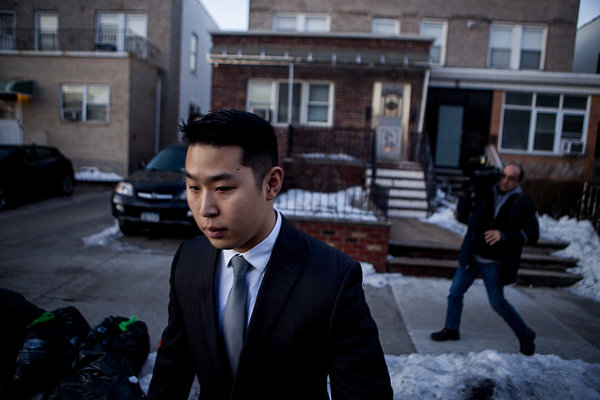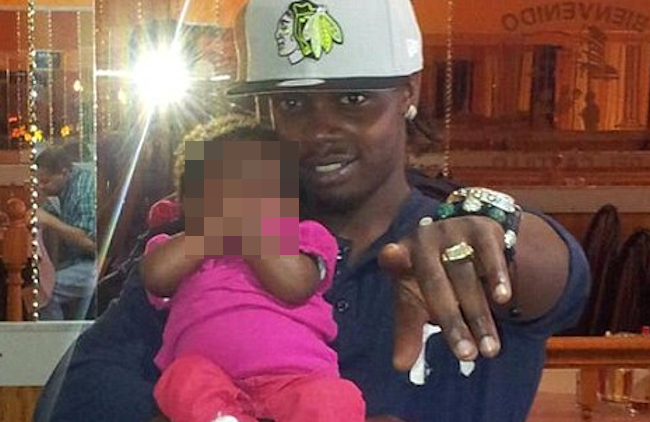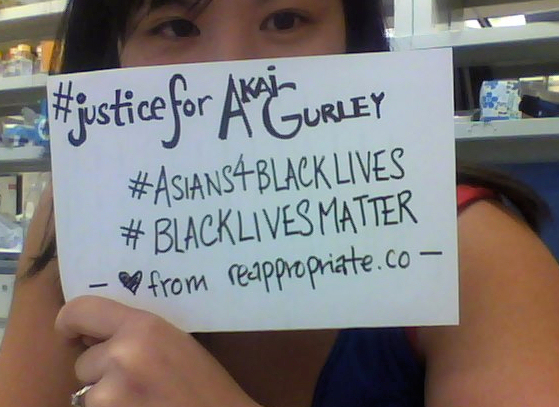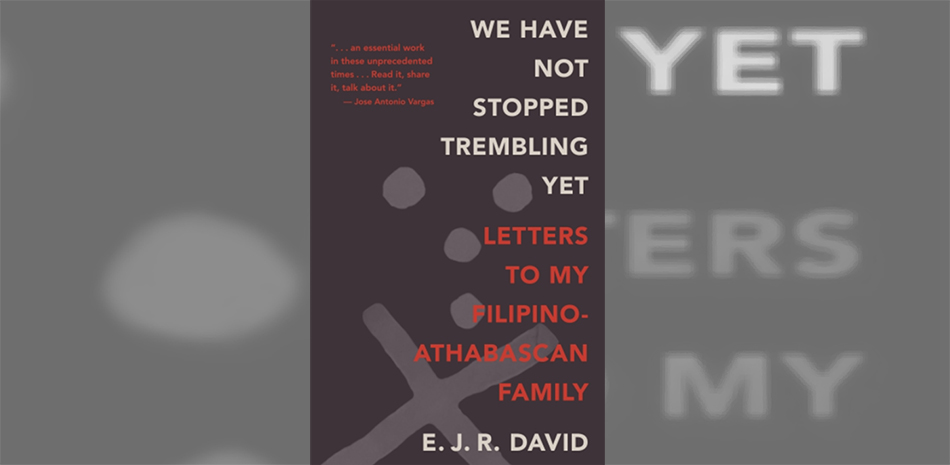
After nearly three days of deliberation, jurors found former NYPD rookie police officer Peter Liang guilty of manslaughter and official misconduct in the shooting death of Akai Gurley in late November 2014. Liang, whose position with the NYPD was automatically terminated with his guilty verdict, reportedly dropped his head as the guilty verdict was read. Sentencing is scheduled for April 14th, and Liang faces up to 15 years in prison.
For the last several days, jurors had deliberated Liang’s fate after hearing details about how Liang fired a single round from his service weapon while he and his partner, NYPD police officer Shaun Landau, were conducting a vertical patrol in the heavily-trafficked stairwell of a residential apartment building. Prosecutors argued that Liang acted recklessly when he fired into the darkness of the unlit stairwell despite ample police academy training that instructed him and all officers to not place their fingers in the trigger well of their weapon unless they are ready to fire a shot; jurors also heard that Liang’s weapon required 11.5 pounds of force in order to pull the trigger, a modification specific to police service weapons ensuring that they need nearly twice the force required to fire compared to commercially-available handguns to minimize accidental discharges.

Finally, jurors heard that Liang and his partner argued in the minutes after the shooting, which left Gurley fatally wounded, instead of calling supervisors as they are immediately required to do. Only when they returned to the stairwell to recover the bullet casing did Liang and Landau discover Gurley’s bleeding body, but that neither police officer administered critical life-saving measures such as CPR.
In tearful testimony, Liang said that he fired into the stairwell because he was startled by an unknown sound, and that he panicked upon learning that he had hit someone with the shot. As for why he didn’t provide CPR to Gurley, Liang said that he didn’t feel adequately trained.
At a Monday press conference, Gurley’s mother responded to this defense strategy:
“Peter Liang says that it was an accidental death. Peter Liang, my son was no accident,” said Sylvia Palmer, the victim’s mother. “You murdered my son. I need justice for my son. I need a conviction of Peter Liang.”
Jurors also apparently didn’t buy Liang’s defense. Although the judge dismissed one of two charges of official misconduct against Liang earlier this week, jurors were left to consider the remaining charges of manslaughter and official misconduct against him. During deliberations, they repeatedly requested to rehear evidence, including the transcript of Liang’s testimony, and they asked to handle Liang’s service weapon and test the trigger pull hours before they delivered the guilty verdict.
This was the right verdict for jurors to return. This case has been highly divisive for the Asian American community, pitting those of us committed to racial justice, police accountability and an end to excessive police force that predominantly targets Black and Brown bodies against members of our community who viewed Liang’s story only through the narrow lens of racial tribalism. Regardless of whether Peter Liang’s status as an Asian American, or as a young rookie, meant that he may have enjoyed less institutional support compared to seasoned, White police officers, nothing erases the fact that Liang shot and killed an unarmed Black man under totally avoidable circumstances. Nothing excuses Liang’s actions, and nothing argues that he should escape accountability.
Asian Americans can and should work to end racism that we face in the workplace, but we can not and should not demand it arrive to the exclusion of justice for a murdered young man. Akai Gurley’s life — quite simply — mattered.
As Brooklyn District Attorney Kenneth Thompson said about Akai Gurley in reaction to the verdict:
“He was a son. He was a brother?,” Brooklyn District Attorney Kenneth Thompson said after the verdict. “I told his mother, I’m sorry. There are no winners. This is a tragedy all over.”
I do not relish the possibility that Liang will likely spend the next several years in prison. There is no joy in knowing that the course of Liang’s life has been irrevocably altered today. But, I also believe this verdict is the first step towards the peace that Akai Gurley’s family deserves.
I hope that today’s verdict is the first step towards dismantling the cultural, political and legal shielding we place around our law enforcement officers that protects them from accountability for their mistreatment of (typically Black and Brown) civilians. I hope that we can begin to question as a nation how much power we’ve placed in the hands of law enforcement, and to at least challenge the fact that no one seems to be watching our watchmen. I hope that Peter Liang is not the last police officer who is held accountable for their involvement in the wrongful deaths of innocent Black men and women.
I hope that starting tomorrow, police officers will think twice about meeting unarmed Black and Brown civilians with guns drawn, and that soon we can begin to say that our police’s culture of shooting first and asking questions never is — finally — seeing its welcome end.
There was a time when the Asian American community was united in speaking out against excessive police force and racial profiling. I hope that tonight we can come again once more to praise a verdict that finally holds a police officer accountable for the reckless killing of a young man whose life was taken from this world far, far too soon.
Read More: Why we must support the indictment of Peter Liang



